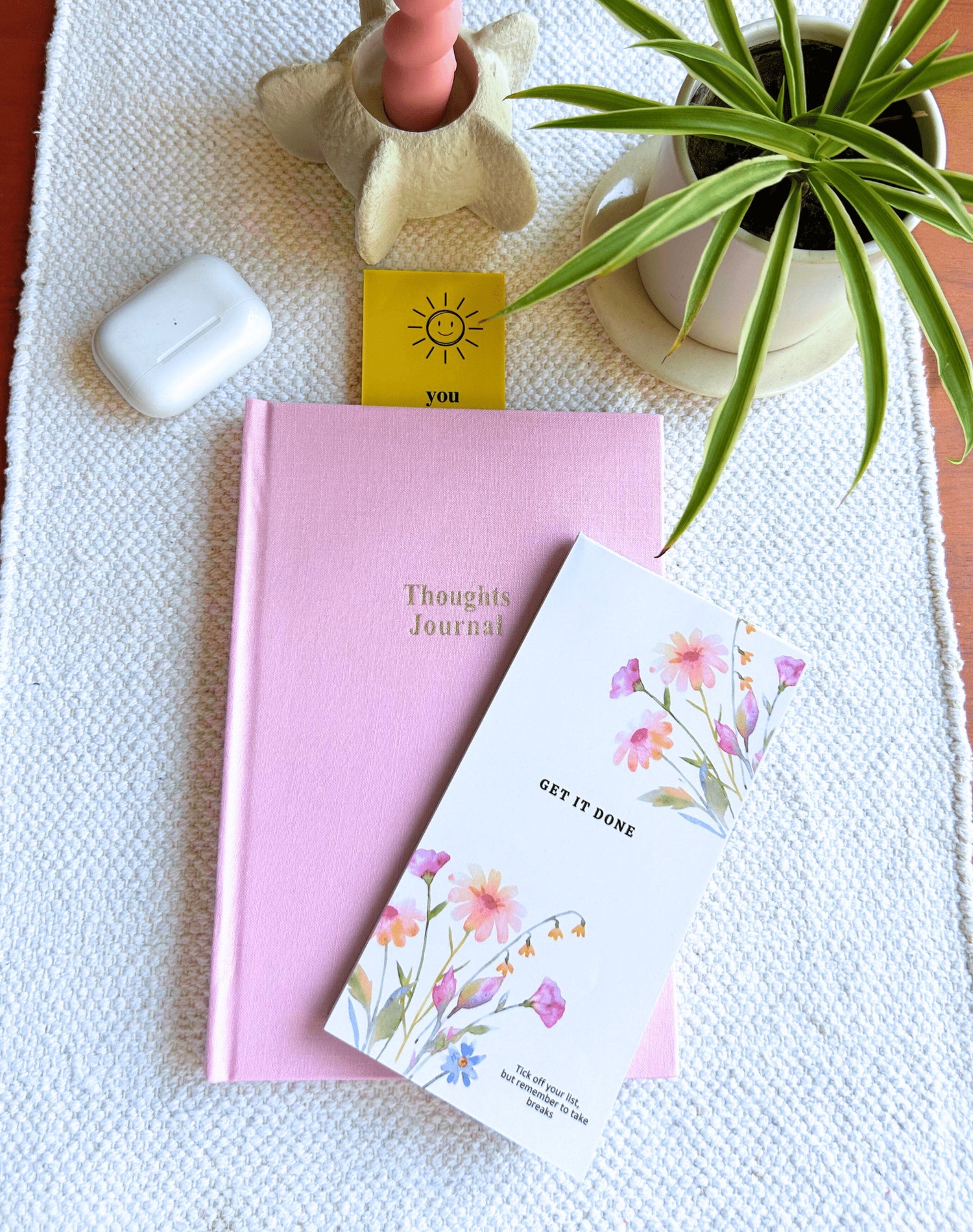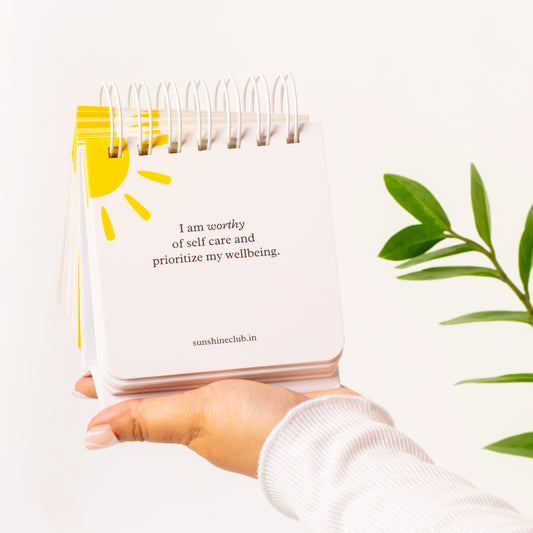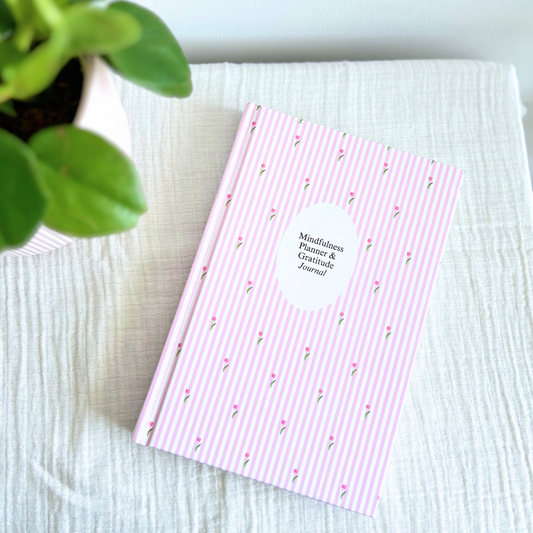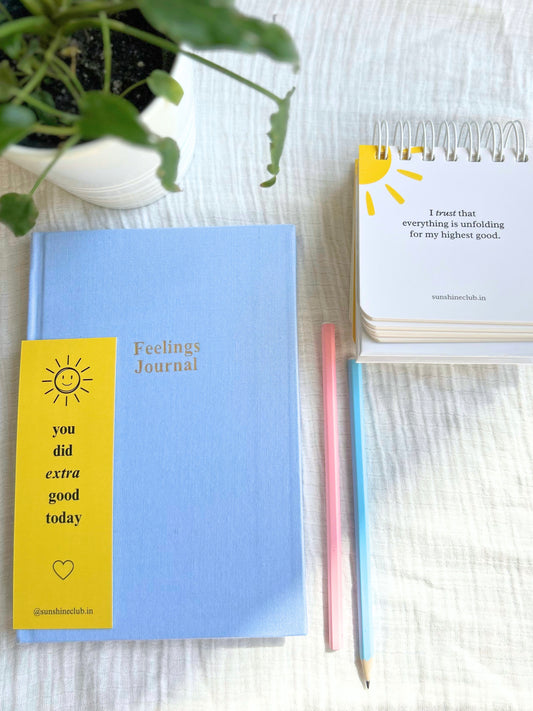
The power of a Feelings Journal: Why you should start one today
Share
In the whirlwind of our busy lives, emotions often take a backseat to tasks and responsibilities. Yet, these emotions play a crucial role in shaping our mental health, relationships, and overall well-being. Maintaining a Feelings Journal—a simple but profound practice—can be a transformative tool for self-awareness and emotional growth. Here’s why it’s worth starting one today.
1. Enhances Emotional Awareness
One of the first steps to emotional intelligence is understanding what we feel and why we feel it. A feelings journal provides a safe, judgment-free space to explore emotions in depth. Writing about your feelings helps you name and frame them, turning vague discomfort into a clear narrative. Over time, this practice sharpens your ability to identify and articulate emotions, leading to greater self-awareness.
2. Provides Stress Relief
Bottling up emotions can lead to stress and anxiety. Journaling serves as a release valve, allowing you to pour out your feelings onto the page instead of carrying them around. Research shows that expressive writing can reduce cortisol levels—the hormone associated with stress. Simply taking a few minutes to write about what’s weighing on your heart can leave you feeling lighter and more at peace.
3. Helps Recognise Patterns
Do certain situations always leave you feeling overwhelmed or frustrated? Are there recurring sources of joy in your life? A feelings journal helps you identify emotional patterns over time. By reflecting on entries, you can uncover triggers, recurring themes, and even the people or activities that consistently affect your mood. This insight is invaluable for making intentional changes in your life.
4. Fosters Better Decision-Making
Emotions often influence our decisions—sometimes in ways we don’t fully understand. Writing about your feelings can bring clarity, helping you separate emotional impulses from thoughtful choices. A journal acts as a sounding board, allowing you to explore potential outcomes and align your decisions with your values and goals.
5. Encourages Emotional Processing
When life throws challenges your way, it’s tempting to suppress difficult emotions or move on too quickly. A feelings journal encourages you to sit with your emotions and process them healthily. Whether you're grieving a loss, navigating a tough conversation, or celebrating a win, journaling gives you the space to fully experience and integrate these moments.
6. Boosts Mental Health
Numerous studies have highlighted the mental health benefits of journaling. Regularly writing about emotions can reduce symptoms of depression and anxiety, improve mood, and foster a greater sense of control. A journal also acts as a tool for self-compassion, reminding you to acknowledge and validate your feelings without judgment.
7. Improves Relationships
Understanding your own emotions is the foundation of understanding others. Journaling about your interactions and feelings can improve empathy and communication in relationships. When you process your emotions privately, you’re less likely to react impulsively in conflicts, leading to healthier dynamics with those around you.
How to Start a Feelings Journal
Starting a feelings journal doesn’t require fancy tools—just a notebook or app and a willingness to be honest with yourself. Here are a few tips to get started:
- Set a Routine: Write at the same time each day to build consistency.
- Be Honest: Your journal is a private space; let your guard down.
- Use Prompts: If you’re unsure where to start, try prompts like What am I feeling right now? or What made me smile today?
- Reflect Regularly: Revisit past entries to track growth and gain insight.
A feelings journal is more than just a diary—it’s a tool for personal transformation. By dedicating a few moments each day to reflect on your emotions, you can deepen your self-understanding, reduce stress, and enhance your overall quality of life. Start today, and watch how this simple practice nurtures your emotional well-being and personal growth.
Let your feelings flow—your future self will thank you!








